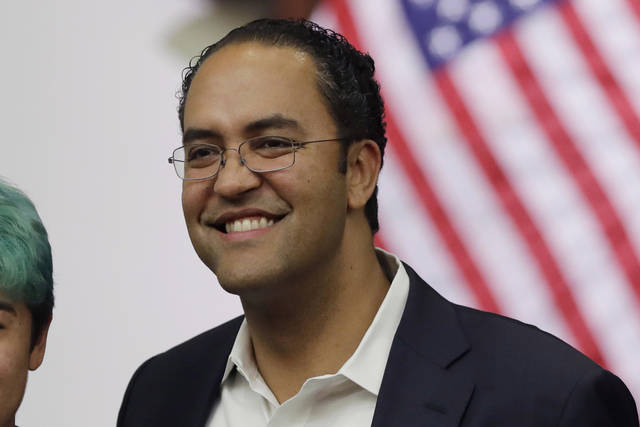WASHINGTON
The beginning of the Supreme Court’s term this week includes momentous oral arguments on Tuesday in two cases that illustrate clashing theories about how statutes should be construed. If properly decided, the cases will nudge Congress to act like a legislative body.
At issue is whether workplace discrimination based on sexual orientation is forbidden by the 1964 Civil Rights Act, which proscribed discrimination because of a person’s “race, color, religion, sex, or national origin.” The question is whether “sex” also proscribes discrimination based on sexual orientation. Tuesday’s arguments will reprise those made in 2017 in another case. Then the U.S. Court of Appeals for the Seventh Circuit held, in effect, that Congress can now be said to have proscribed such discrimination without intending to. Dissenting judges rejected this conclusion because it empowers courts to do what Congress clearly did not do but easily could do.
Kimberly Hively, a part-time adjunct professor at an Indiana community college, says she was repeatedly denied a full-time position, and then her part-time contract was not renewed, because she is a lesbian. The Seventh Circuit majority said the question is “what it means to discriminate on the basis of sex” — are “actions taken on the basis of sexual orientation” a “subset of actions taken on the basis of sex”?
Citing “the broader context of the statute,” the majority acknowledged but disregarded the fact that Congress has “frequently” considered adding, but has declined to add, “sexual orientation” to the act. The majority professed to have “no idea what inference to draw from congressional inaction.” Besides, “The goalposts have been moving over the years, as the Supreme Court has shed more light on” the phrase “sex discrimination.” So, the majority said, Congress in 1964 “may not have realized or understood the full scope of the words it chose.” Discrimination based on sexual orientation necessarily involves “taking the victim’s biological sex … into account.” Hence “it would require considerable calisthenics to remove the ‘sex’ from ‘sexual orientation.’”
“Times have changed,” said a judge concurring with the majority opinion. He continues: “[T]he meaning of the statute has changed and the word ‘sex’ in it now connotes both gender and sexual orientation.” The concurring judge said that “it is well-nigh certain” that homosexuality “did not figure in the minds of the legislators” in 1964. Then “homosexuality was almost invisible.” Since then, however, “nothing has changed more” than attitudes toward sex, which now “has a broader meaning than the genitalia you’re born with.” Therefore — non sequitur alert — the “passage of time and concomitant change in attitudes … can justify a fresh interpretation” of the statute that is “ripe for reinterpretation.”
Ripeness means, for the concurring judge, “taking advantage of what the last half century has taught” in order to correct “statutory obsolescence” and “to avoid placing the entire burden of updating old statutes on the legislative branch.” When and where, one wonders, were courts authorized to share the “burden” of legislating?
The Seventh Circuit’s minority said that if Hively was denied a job because of her sexual orientation, she was treated unjustly, but not illegally under the 1964 Civil Rights Act. It is depressing but clear that the Supreme Court needs to remind Congress — and the Seventh Circuit — that “statutory updating” is Congress’ job.








